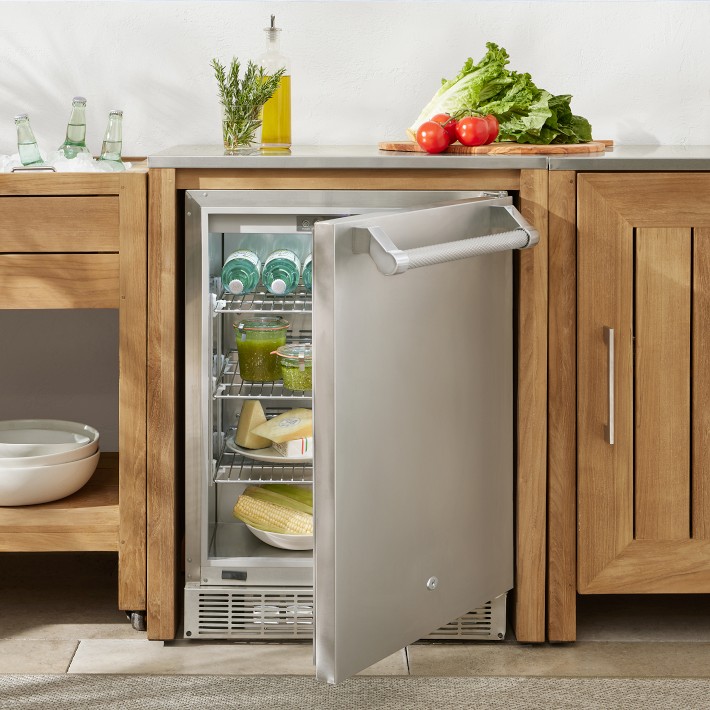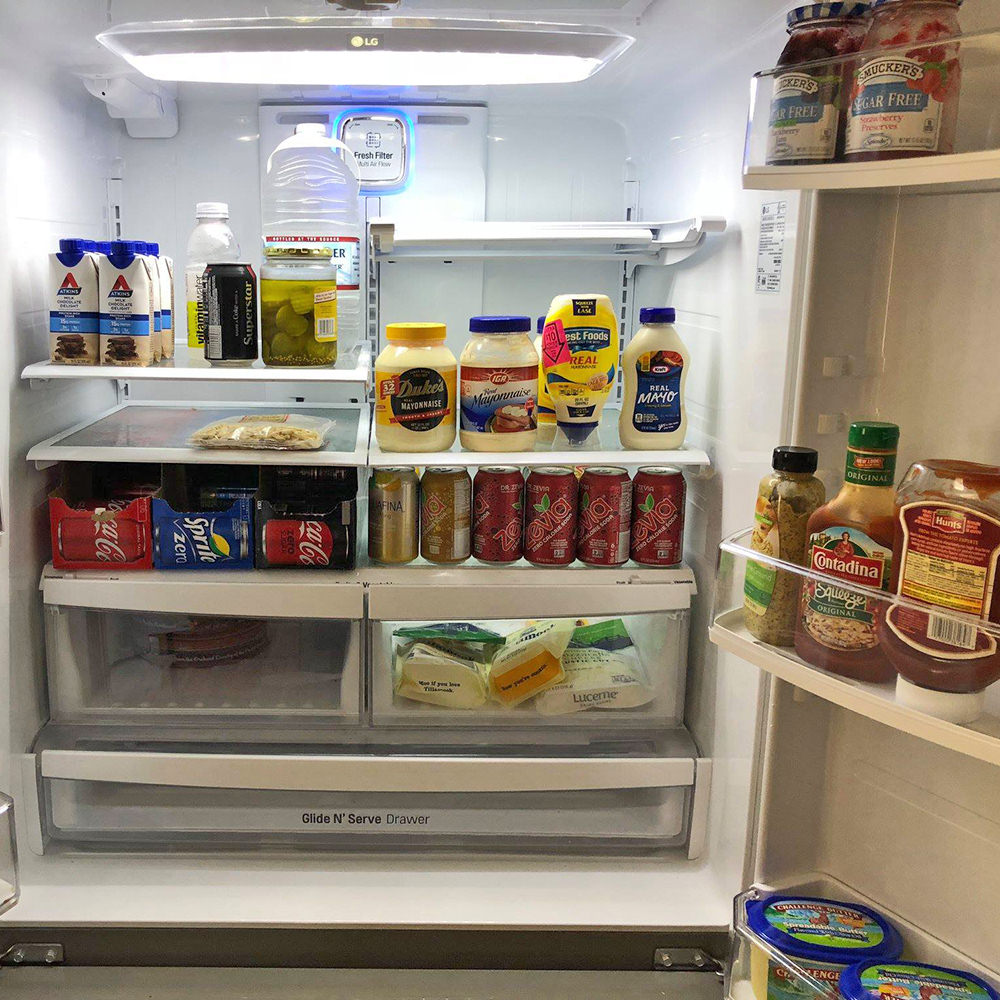We all enjoy a delicious, juicy hamburger, but sometimes we make more than we can eat in one sitting. The question arises: How long can you keep cooked hamburger in the refrigerator before it becomes unsafe to eat? This article aims to provide you with detailed information on the safe storage of cooked hamburgers, including proper storage techniques, signs of spoilage, and tips to keep your hamburger fresh for as long as possible.
Understanding Safe Storage Times
Knowing the appropriate time frame for storing cooked hamburger is crucial for maintaining food safety and preventing foodborne illnesses.
General Guidelines
According to the United States Department of Agriculture (USDA), you can safely store cooked hamburger in the refrigerator for 3 to 4 days. This time frame ensures that the hamburger retains its quality and remains safe to eat. Following these guidelines helps minimize the risk of consuming spoiled or contaminated food.
Factors Affecting Storage Time
Several factors can influence how long your cooked hamburger remains safe to eat in the refrigerator. Factors like the temperature of your refrigerator, how the hamburger was cooked, and how it was stored can all affect its shelf life. By understanding these factors, you can better manage and extend the storage time of your cooked hamburger.
Importance of Prompt Refrigeration
Refrigerate cooked hamburger within two hours of cooking to prevent bacterial growth. The danger zone for bacterial growth is between 40°F and 140°F. Prompt refrigeration is essential in maintaining food safety and reducing the risk of foodborne illnesses.
Proper Storage Techniques
Utilizing proper storage techniques can help maintain the quality and safety of your cooked hamburger.
Using Airtight Containers
Store your cooked hamburger in airtight containers to prevent exposure to air and moisture. Airtight containers help maintain the burger’s freshness and prevent the absorption of other odors from the refrigerator. Proper storage techniques contribute to extending the hamburger’s shelf life.
Wrapping in Foil or Plastic Wrap
If you don’t have airtight containers, tightly wrap the cooked hamburger in aluminum foil or plastic wrap. Ensure that the wrap covers the hamburger completely to minimize air contact. Using foil or plastic wrap as a storage method helps keep the hamburger fresh for a longer period.
Labeling and Dating
Always label and date the containers or wraps before placing them in the refrigerator. Knowing when you stored the hamburger helps keep track of its freshness and ensures you consume it within the safe time frame. Labeling and dating your stored food items add an extra layer of food safety management.
Recognizing Signs of Spoilage
Identifying the signs of spoilage can help you determine whether your cooked hamburger is still safe to eat.
Visual Inspection
Inspect the cooked hamburger for any discoloration, mold, or visible changes in texture. Spoiled hamburger may develop a slimy or sticky texture, indicating bacterial growth. Visual inspection is the first step in assessing the hamburger’s safety.
Smell Test
Smell the cooked hamburger to check for any off or sour odors. A rancid or sour smell is a clear indicator that the hamburger has gone bad and should not be consumed. The smell test is a quick and effective method to gauge the freshness of your food.
Taste Test (With Caution)
If the hamburger passes the visual and smell tests but you’re still unsure, you can take a small bite to test. However, if there’s any doubt about its safety, it’s better to err on the side of caution and discard it. Conducting a cautious taste test provides an additional confirmation of the hamburger’s condition.
Extending the Shelf Life
If you want to keep your cooked hamburger for longer than a few days, consider freezing it to extend its shelf life.
Freezing Cooked Hamburger
Place the cooked hamburger in airtight freezer-safe containers or wrap it tightly in aluminum foil or plastic wrap before placing it in a freezer bag. This method prevents freezer burn and keeps the hamburger in good condition. Freezing cooked hamburger is an effective way to extend its shelf life up to 2-3 months.
Defrosting Safely
When you’re ready to eat the frozen hamburger, defrost it in the refrigerator overnight or use the defrost function on your microwave. Never defrost at room temperature, as this can promote bacterial growth. Safe defrosting practices are essential for maintaining the hamburger’s quality and safety.
Reheating Properly
Reheat the defrosted hamburger to an internal temperature of 165°F (74°C) to ensure it is safe to eat. Use a food thermometer to check the temperature. Proper reheating methods ensure that the hamburger reaches the required safe temperature, eliminating any potential bacteria.
Best Practices for Hamburger Storage
Adhering to best storage practices enhances the longevity and safety of your cooked hamburger.
Consistent Refrigerator Temperature
Maintain your refrigerator at a consistent temperature of 40°F (4°C) or below to ensure that all stored food items, including cooked hamburger, remain safe to eat. Regularly check and adjust your refrigerator’s temperature settings to maintain optimal conditions.
Preventing Cross-Contamination
Store cooked hamburger separately from raw meat and other potential contaminants in the refrigerator. Use dedicated containers or shelves to prevent any cross-contamination. Effective storage organization helps in maintaining food safety and quality.
Timely Consumption
Aim to consume your cooked hamburger within the recommended 3 to 4-day time frame. Planning your meals and storage can help reduce food waste and ensure you enjoy fresh and safe food. Timely consumption is a key aspect of food safety and kitchen efficiency.
Benefits of Proper Storage
Proper storage of cooked hamburger offers several benefits, including food safety, quality preservation, and cost savings.
Ensuring Food Safety
Safe storage practices minimize the risk of foodborne illnesses by preventing bacterial contamination. Following established guidelines and techniques ensures that your food remains safe to eat. Ensuring food safety is a fundamental benefit of proper storage.
Preserving Quality
Proper storage methods help maintain the taste, texture, and overall quality of the cooked hamburger. This allows you to enjoy your food as intended, even after a few days of storage. Quality preservation enhances your overall dining experience.
Reducing Waste
By extending the shelf life of your cooked hamburger and consuming it within a safe period, you reduce food waste. This not only saves money but also contributes to environmentally friendly practices. Reducing waste through proper storage is a win-win for your wallet and the planet.

Common Myths About Storing Cooked Hamburger
There are several myths about storing cooked hamburger that can lead to unsafe practices. Understanding the facts helps you make informed decisions.
Myth: Room Temperature Storage is Safe
Some people believe that it’s safe to leave cooked hamburger at room temperature for extended periods. However, this practice can lead to rapid bacterial growth and increase the risk of foodborne illness. Always refrigerate cooked hamburger within two hours to ensure safety.
Myth: Appearance Alone Determines Safety
While visual inspection is helpful, it’s not the only method to determine if cooked hamburger is safe to eat. Bacteria and pathogens can be present even if the hamburger looks and smells okay. Following recommended storage times and guidelines is essential for food safety.
Myth: Reheating Kills All Bacteria
Reheating cooked hamburger can kill some bacteria, but it doesn’t eliminate all risks, especially if the hamburger was stored improperly. Initially storing the hamburger correctly and then reheating it to the proper temperature is crucial.
FAQs About Storing Cooked Hamburger
Can I Store Cooked Hamburger with Other Leftovers?
Yes, you can store cooked hamburger with other leftovers, but ensure that each item is in its own airtight container to prevent cross-contamination. Proper separation and storage help maintain safety and quality.
How Can I Tell If Cooked Hamburger Has Gone Bad?
Look for signs such as discoloration, a slimy texture, off odors, and any unusual changes in appearance. If in doubt, discard the hamburger to avoid the risk of foodborne illness.
Can I Store Cooked Hamburger Patties and Ground Hamburger Similarly?
Yes, both cooked hamburger patties and ground hamburger can be stored using the same methods. Utilize airtight containers or proper wrapping techniques, label, and refrigerate or freeze as needed.
Conclusion
Understanding how long you can keep cooked hamburger in the refrigerator is crucial for maintaining food safety and quality. By adhering to recommended storage times, using proper storage techniques, recognizing signs of spoilage, and utilizing methods to extend shelf life, you can enjoy your cooked hamburger safely and deliciously. Proper storage practices not only ensure the safety of your food but also help in reducing waste and saving money. Following these guidelines and debunking common myths will allow you to make informed decisions and get the most out of your cooked hamburger.


